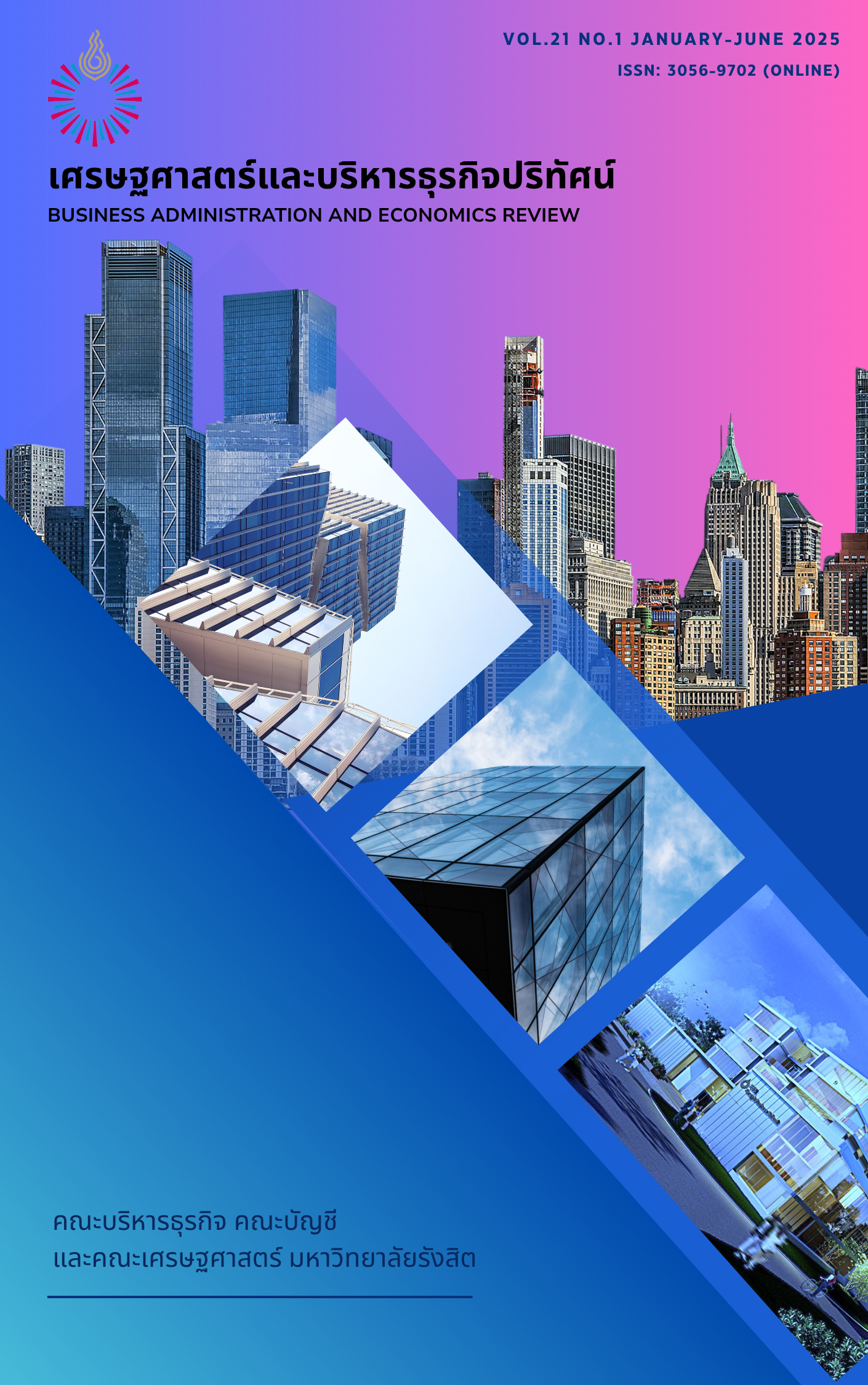Interactive Game Development for Creating a Marketing Plan, in Collaboration with Avid Online Gamers
Keywords:
interactive game, marketing plan, online gameAbstract
This study explored the potential of leveraging online game engagement to improve learning outcomes in marketing plan development, acknowledging both the potential benefits and drawbacks of video games for young people. The research pursued three objectives: (1) to analyze the perceptions of avid online gamers before and after the development of an interactive marketing plan game; (2) to analyze student perceptions of the game-based learning activity using the interactive marketing plan game before and after implementation; and (3) to develop an interactive marketing plan game, "MarkWarrior,"that incorporates engaging mechanics and elements from popular online games. Qualitative data was gathered through focus group interviews with undergraduate students—both avid online gamers and those participating in an innovative business program—before and after playing the game. Results showed significant improvements in student engagement, satisfaction, and marketing planning skills, suggesting the potential of the game as a practical and effective business educational tool.
References
Bhatiasevi, V., & Pholphirul, P. (2020). The condition of online game addiction among Thai children. Post Today. Retrieved from https://www.posttoday.com/columnist/640863.
Capatina, A., Juarez-Varon, D., Micu, A., & Micu, A. E. (2024). Leveling up in corporate training: Unveiling the power of gamification to enhance knowledge retention, knowledge sharing, and job performance. Journal of Innovation & Knowledge, 9(3), 1–15.
Chonticha, M. (2021). DISC personality test: Find your strengths and weaknesses to find out which type of work is right for you. Wongnai. Retrieved from https://www.wongnai.com/articles/disc-personality-test
Hsieh, H. F., & Shannon, S. E. (2005). Three approaches to qualitative content analysis. Qualitative Health Research, 15(9), 1277–1288.
Kotler, P., & Armstrong, G. (2020). Principles of marketing (18th ed.). Pearson.
Lincharearn, A. (2018). Qualitative data analysis techniques. Journal of Educational Measurement Mahasarakham University, 17(1), 17–28.
Manager 360. (2022). Garena joins hands with insKru to launch the 'Learning Arena, the battlefield of learning' activity to inspire teachers to use games to develop teaching and learning. Manager 360. Retrieved from https://gotomanager.com/content/118431/
Marketing Association of Thailand. (2025). J-MAT Next Gen. Retrieved from https://www.marketingthai.or.th/j-mat-events/
Meejaitam, N., & U-nakarin, T. (2021). The development of English language learning achievement using gamification techniques for the fifth-grade students. Journal of Education Burapha University, 32(2), 76–90.
Monahan, B. (2023). The ultimate guide to Garena RoV: Everything you need to know. Hurricane District. Retrieved from https://hurricanedistrict.org/garena-rov/
Srisuchart, N., Sungsriin, S., Denphitat, R., Poonsawat, P., & Naksusook, N. (2024). The development of streamlined new innovator creation process through crafting business innovation for the competitions. Journal of Management Science Udon Thani Rajabhat University, 6(5), 36–51.
Sutheewasinnon, P., & Pasunon, P. (2016). Sampling strategies for qualitative research. Parichart Journal, 29(2), 31–48.
Tabchum, P., & Wutchana, U. (2024). Game-based learning integrated with gamification to enhance achievement motivation and improve learning achievement in science for grade 8 students. Journal of Educational Technology and Communications Mahasarakham University, 7(24), 130-142.
TK Park. (2023). รู้จัก Roblox สุดยอดแพลตฟอร์มเกมแห่งยุค (Get to know Roblox, the ultimate gaming platform of the era) . Retrieved from https://www.tkpark.or.th/tha/articles_detail/1697341993077/รู้จัก-Roblox-สุดยอดแพลตฟอร์มเกมแห่งยุค
Wang, Y., Hsu, Y., & Fang, K. (2021). The key elements of gamification in corporate training - The Delphi method. Entertainment Computing, 40, 1-9.

Downloads
Published
How to Cite
Issue
Section
License
Copyright (c) 2025 Business Administration and Economics Review

This work is licensed under a Creative Commons Attribution-NonCommercial-NoDerivatives 4.0 International License.
The contents in Business Administration and Economics Review can be used for publication. But do not modify, modify or use it for trade and profit.

